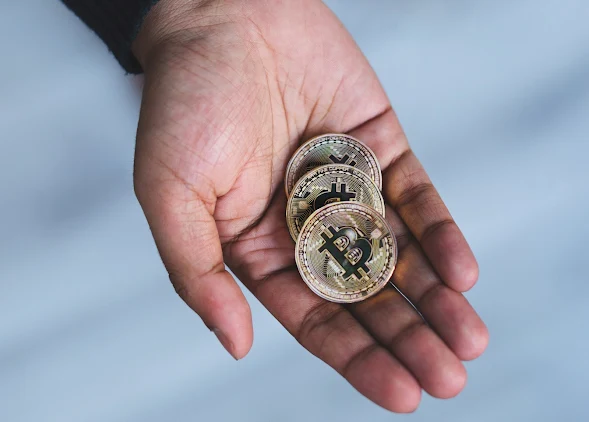Bitcoin is a decentralized digital currency, without a central bank or single administrator, that can be sent from user to user on the peer-to-peer bitcoin network without the need for intermediaries. Transactions are verified by network nodes through cryptography and recorded in a public distributed ledger called a blockchain.
Bitcoin was invented in 2008 by an unknown person or group of people using the name Satoshi Nakamoto. The currency began use in 2009 when its implementation was released as open-source software.
Blockchain
Network nodes can validate transactions, add them to their copy of the ledger, and then broadcast these ledger additions to other nodes. To achieve independent verification of the chain of ownership, each network node stores its own copy of the blockchain. At varying intervals of time averaging to every 10 minutes, a new group of accepted transactions, called a block, is created, added to the blockchain, and quickly published to all nodes, without requiring central oversight.
Ownership
Ownership of bitcoin is established through digital keys, bitcoin addresses, and digital signatures. The digital keys are not actually stored in the network, but are instead created and stored by users in a file, or simple database, called a wallet. The digital keys in a user's wallet are completely independent of the bitcoin protocol and can be generated and managed by the user's wallet software without reference to the blockchain or access to the internet.
Addresses are not intended to be used more than once, and doing so has numerous problems associated. Address reuse can allow for loss of privacy. It is also advisable to use new addresses for every transaction to avoid transaction linkability, or privacy loss.
Mining
Mining is a record-keeping service done through the use of computer processing power. Miners keep the blockchain consistent, complete, and unalterable by repeatedly grouping newly broadcast transactions into a block, which is then broadcast to the network and verified by recipient nodes.
New transactions are constantly being processed by miners into new blocks which are added to the end of the chain and can never be changed or removed once accepted by the network (although some software allows for the recording of new transactions without a need for a constant connection). As new blocks are mined all the time, the difficulty of modifying a block increases with time and the number of subsequent blocks (also called confirmations of the given block).
Bitcoin is a digital asset designed to work as a medium of exchange that uses cryptography to control its creation and management, rather than relying on central authorities. The presumed pseudonymous Satoshi Nakamoto integrated many existing ideas from the cypherpunk community when creating bitcoin.
Bitcoins are created as a reward for a process known as mining. They can be exchanged for other currencies, products, and services. Research produced by University of Cambridge estimates that in 2017, there were 2.9 to 5.8 million unique users using a cryptocurrency wallet, most of them using bitcoin.
Risks and Challenges
Bitcoin has been criticized for its association with illegal transactions, its high energy consumption, price volatility, thefts from exchanges, and the possibility that bitcoin is an economic bubble. Bitcoin has also been used as an investment, although several regulatory agencies have issued investor alerts about bitcoin.









.jpg)






0 Comments